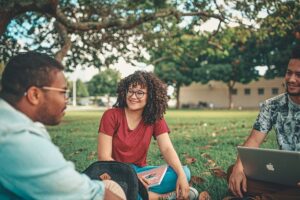
The term discipleship in some circles has become synonymous with Christian teaching or education, but it doesn’t necessarily have to be so. The meaning in these cases is broad and inclusive because it can refer to any type of content, course, or teaching material. The focus of the concept of ‘disciple’ is more limited and specific, implying an intensive relationship between an experienced person and others. It can also be called: A mentoring relationship involving the transfer of wisdom, knowledge, experience, and vision.
In the context of teacher-student dynamics in a classroom, the focus is almost always on acquiring knowledge and information, whereas in the context of discipleship, the focus is on shaping principles, values, vision, goals, and also knowledge. In other words, knowledge is not central, but rather the holistic development of individuals, which includes both the teacher and the student in the context of discipleship.
Today’s educational system is something that has been standardized globally, where at some point, it was decided that this was the correct way to conduct classes, and it has remained so over the years. Here, the teacher is at the center of the classroom with the primary objective of group instruction, often following rigid topic structures. In this context, students’ mistakes are typically pointed out by the teacher, and learning is externally reinforced through repetition and rewards.
Conversely, the most effective educational method would be where the tutor plays a more discreet role in the classroom, allowing students to interact with each other and with the tutor; presenting activities to the disciples and allowing them to pursue their own interests while observing and supervising their progress. Educational success lies in developing primarily individualized instruction, where tutors or facilitators work one-on-one with disciples to ensure they fully grasp their tasks and activities.
Students should see the teacher demonstrate an activity at least once, be encouraged to perform that activity independently, and work on solving each challenge themselves. The tutor should guide disciples toward self-realization and self-correction, enabling them to reinforce their learning through various methods accepted by themselves.
The teacher must devise a format for their classes that closely resembles real life, the everyday experiences of their disciples, where each one can act naturally and have the option to learn at their own pace without the imposition of material and standardization.
There is nothing more authentic than allowing disciples to discover their true potential and develop an organized, committed, and focused mind. When they are encouraged to be curious, they become lifelong learners, good citizens, future innovators, and capable leaders who can inspire others.
Author: Julio Hernández
0 Comments